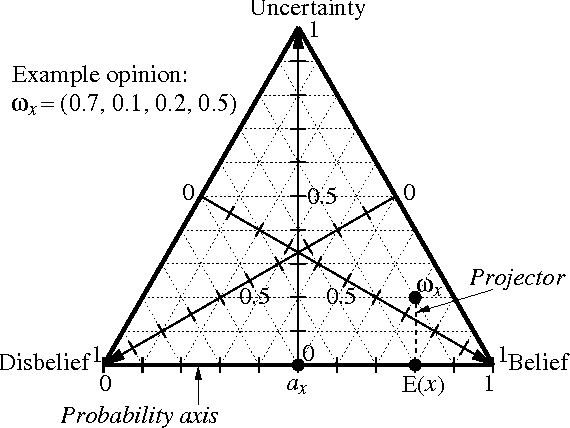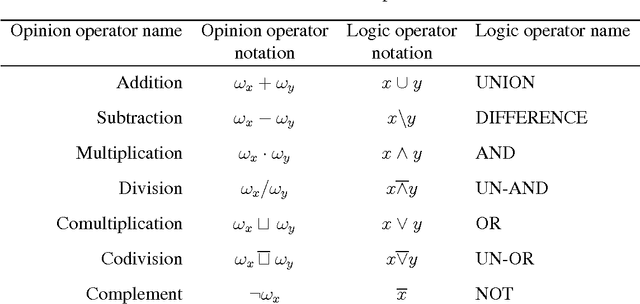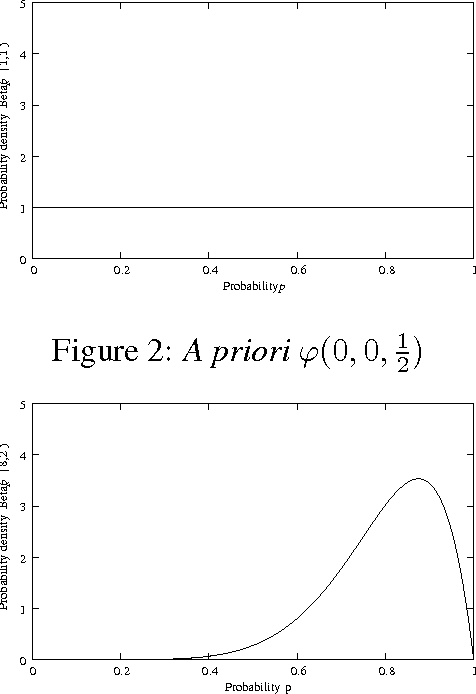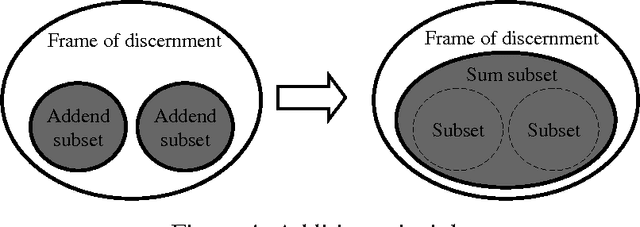Belief Calculus
Paper and Code
Jun 07, 2006



In Dempster-Shafer belief theory, general beliefs are expressed as belief mass distribution functions over frames of discernment. In Subjective Logic beliefs are expressed as belief mass distribution functions over binary frames of discernment. Belief representations in Subjective Logic, which are called opinions, also contain a base rate parameter which express the a priori belief in the absence of evidence. Philosophically, beliefs are quantitative representations of evidence as perceived by humans or by other intelligent agents. The basic operators of classical probability calculus, such as addition and multiplication, can be applied to opinions, thereby making belief calculus practical. Through the equivalence between opinions and Beta probability density functions, this also provides a calculus for Beta probability density functions. This article explains the basic elements of belief calculus.
 Add to Chrome
Add to Chrome Add to Firefox
Add to Firefox Add to Edge
Add to Edge